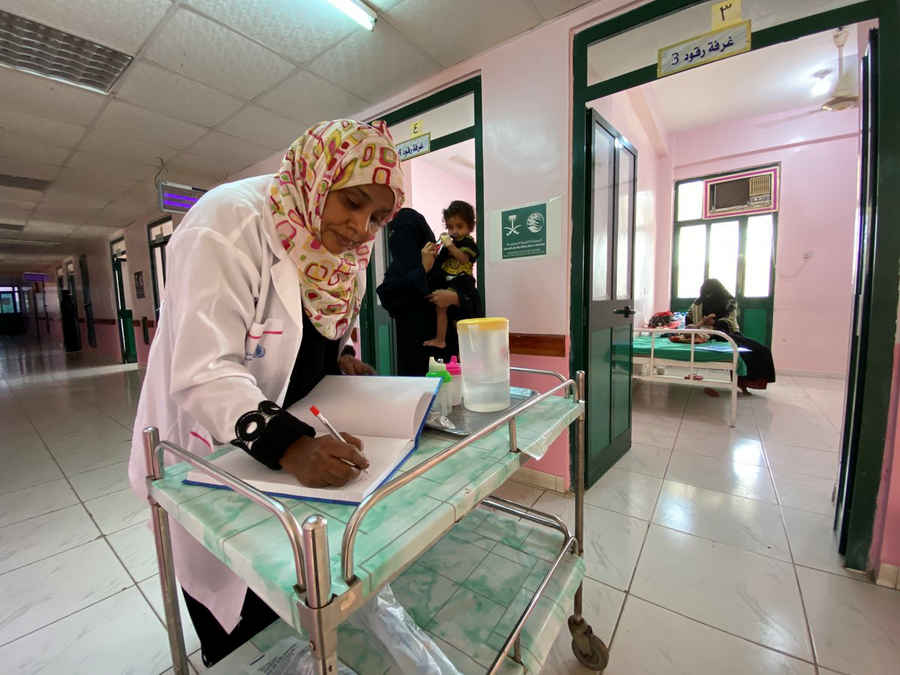
Cairo/Riyadh, 20 September 2020 – The World Health Organization (WHO) and the King Salman Humanitarian Aid and Relief Centre (KSrelief) have renewed their partnership to continue sustaining the health system throughout Yemen.
The agreement, funded at US$ 46 million, includes support to essential health services, COVID-19 preparedness and response efforts and nutrition, water and environmental sanitation services across the county.
Thanks to this partnership, WHO will be able to facilitate the provision of a quality minimum service package to 25 hospitals serving 5.1 million beneficiaries. WHO will also work with health authorities and partners to strengthen preparedness capacity and enhance the capacity of heath staff and pre-hospital and referral care services.
In line with the established COVID-19 response plan, the support of KSrelief will enable WHO to support health authorities in establishing additional isolation units designed to treat patients with a severe or critical incidence of the disease. These will be equipped with the necessary resources, including medicines and ventilators.
The partnership will enable the provision of essential nutrition services in 90 therapeutic feeding centres, covering 222 high priority districts in Yemen's 22 governorates and providing treatment to 23 428 individuals and counselling to their caregivers. Of the 90 centres, 45 will be rehabilitated, and 13 will now become operational to enhance treatment and expand therapeutic feeding services in priority districts.
A project on improvement of water and sanitation services in 45 health care facilities and water quality monitoring and surveillance in high-risk districts will aim to improve health services and health preventive programmes provided at the hospital level, including care of newborns, elimination of childhood pneumonia and diarrhoea.
KSrelief has been the main funding partner of WHO in 2019–2020. Since October 2019, the partnership between the 2 organizations has helped preserve the health system in Yemen, including through ensuring access to health care for the vulnerable in remote areas through the provision of a minimum service package. It allowed WHO to facilitate the provision of lifesaving medicines, including treatment for patients with chronic, life-threatening conditions, such as kidney failure. The partnership has also supported child immunization programmes and assistance to pregnant women for safe birth deliveries.
This new generous contribution will enable timely support to Yemen in containing communicable diseases, including cholera and COVID-19, while preserving the delivery of essential health services.
About the humanitarian crisis in Yemen
Yemen remains the world's worst humanitarian disaster, and WHO's most complex operation. Some 24.3 million people – 80% of the population – now require humanitarian assistance or protection. More than 17.9 million people (out of the total population of 30 million) need health care services in 2020. At the same time, only half of the health facilities are fully functioning. Those that remain open lack qualified health staff, basic medicines, and medical equipment like masks and gloves, as well as oxygen and other essential supplies. WHO and partners are supporting health authorities in responding to the increasing health needs of the population. Still, unprecedented funding shortages are threatening the sustainability of critical, lifesaving programmes, putting millions of lives at risk. Though much has been accomplished, more needs to be done to secure Yemenis’ right to health and to save many more lives, now more than ever with the added burden and unprecedented threat of COVID-19.
For more information, please contact :
Inas Hamam
Communications Officer


